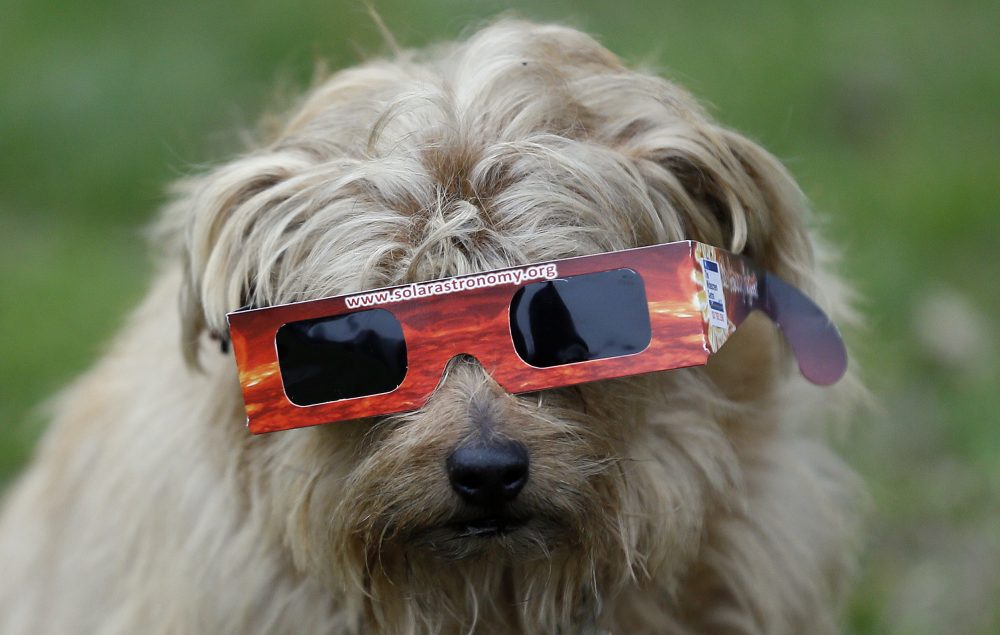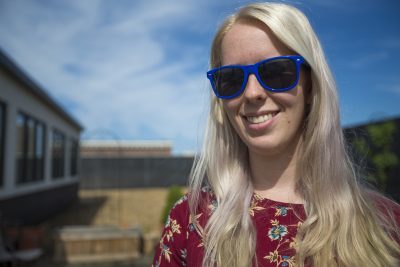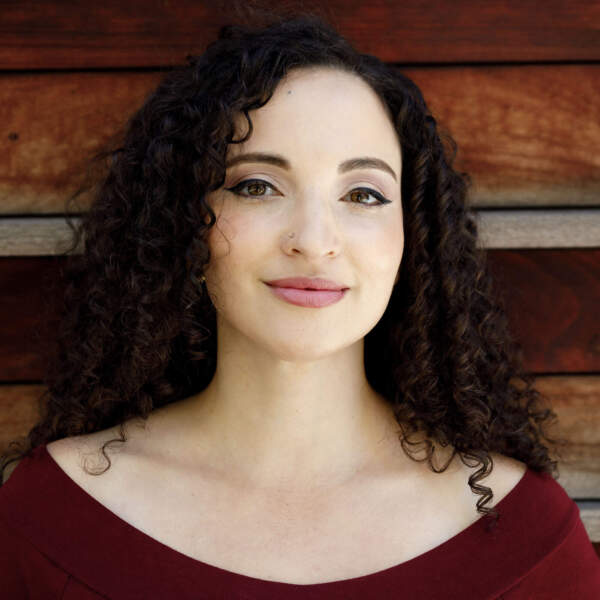Advertisement
Curious Boston
What To Know About Watching The Solar Eclipse In Mass.
Resume
For those of us who can’t make it to the path of totality for Monday's solar eclipse, there is some hope we can still make the most of the experience.
This is the first solar eclipse to cross from coast to coast since 1918. Janine Myszka, a writer for Cambridge-based Sky & Telescope magazine, spoke with WBUR's Bob Oakes and answered some questions from WBUR users about the rare celestial event everyone’s talking about. (Follow the eclipse's path here.)

Bob Oakes: What is going to happen?
Janine Myszka: We're going to witness one of the most amazing celestial events that we can see here on Earth. The moon is going to pass between the sun and the Earth and it’s going to cast a shadow. We’re in the partial part of that shadow, it’s called the penumbra. ... Here in Boston and Cambridge, we’ll only get blocked out part of the sun and we’re going to see a partial eclipse, and it’s going to be really awesome.
How much of the sun will be covered? (Asked by David)
Here in the Cambridge/Boston area, we’re going to have about 63 percent of the sun covered. Across the state of Massachusetts, we’re going to have anywhere from 67 percent to 61 percent.
What effect will we see here and what are we going to miss? (Asked by an anonymous listener)
We’re going to miss a lot, to be honest. Being in a total solar eclipse, I've been told, is a completely different animal. The sky goes to twilight, the stars come out, you can see planets.
Here in Boston, we’re not going to have quite nearly a dramatic effect. You might notice that shadows get a little bit sharper. But because we’re only in the 63 percent coverage area we won't notice a ton.
What time should I go watch the eclipse and how long is it going to last? (Asked by Cara)
So we want to go outside at the point where [the sun] is the most covered. In Boston, that’s at 2:46 p.m., that's when we'll have that 63 percent coverage.
Across Massachusetts, it's anywhere from 2:40 p.m. to 2:50 p.m.
(Check out this widget from Sky & Telescope that will tell you the exact time for your location.)
Can I wear sunglasses to look at the eclipse? (Asked by Kathy D.)
No, don't do that! The glasses that we have for the eclipse are very special glasses. They're blocking out a much, much, much higher percentage of light than your sunglasses are gonna block out.
What you want are either welders glasses, you really want to use degree 14, or you can get those fancy solar eclipse glasses that you might have found at your local library, your local science museum. Don't under any circumstances look at the sun without some sort of protection.
(You can check out a list of reputable eclipse viewer vendors here.)
Any DIY versions?
One of the best ways to view the eclipse is with a pinhole projector. There's a lot of different ways to do that. A classic one is to have a box and poke a hole in one side and put a white paper at the other side, and you actually look away from the sun while you do it and this is the safest way to do it because you don't need to worry about your little kid taking off the glasses and looking straight at the sun.
You can even use your hands. You can take your right hand and your left hand and spread your fingers a little bit apart and put them over top of each other so it looks like a grid or a waffle. And look at that shadow on the ground.
What astrological sign will the sun be in and how will that affect the eclipse? (Asked by Marsha J)
The sun will be in Leo and what that means for people who are in totality is what stars people will be able to see by the sun. You’ll also be able to see Sirius, Rigel and Capella, and in totality you’ll be able to see three planets — Venus, Mars and Mercury.
We will not be able to see stars in Massachusetts because we’re not in totality.
Will electricity production from solar panels in Massachusetts be affected? (Asked by an anonymous listener)
We should notice a drop in production because we will be losing essentially 40 percent of the capabilities of our solar panels during the eclipse -- similar to a cloudier day. ... However, all of the electricity producing companies have thought about this so they have other methods in place to take the slack up and make sure you don’t notice an interruption.
This segment aired on August 21, 2017.

